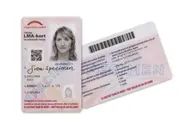Rejection
A rejection to your application means that the Swedish Migration Agency assesses that you do not have enough reasons to be granted asylum in Sweden. You and your guardian will come to a meeting where a case officer explains why you have been rejected and what happens now.
Accept the decision
If you accept the decision, you will have to sign a piece of paper saying that you do not want to appeal. Once you have accepted the decision, you can get help from the Swedish Migration Agency to prepare for your return home.
Appeal
You can appeal the decision if you disagree with the Swedish Migration Agency's decision. To appeal, you and your guardian must write a letter to the Swedish Migration Agency stating why you think the decision is wrong. Your public counsel can help you write an appeal. Your decision will state how long you have to appeal.
The Swedish Migration Agency will read your appeal and assess whether the decision should be changed. If the Swedish Migration Agency does not find that there is reason to change the decision, your appeal will be forwarded to the Migration Court. The Migration Court will review your appeal. If the Migration Court agrees with you, the Swedish Migration Agency will change the decision and you may stay.
If the Migration Court rejects your appeal, it means that they think that the Swedish Migration Agency's decision is correct. You can then appeal to the Migration Court of Appeal, but that court only tries certain special cases where it is unclear how the law should be interpreted. If the Migration Court of Appeal decides not to try your case, it means that you cannot appeal anymore and that the Swedish Migration Agency's decision comes into effect (gains legal force).
You can change your mind at any time and withdraw an appeal and instead decide to return home. You can then get help from the Swedish Migration Agency to prepare for your return home.
Return
Once your asylum application has been rejected you should prepare to return to your home country. The Swedish Migration Agency will help you arrange your return to your home country if you cooperate.
The Swedish Migration Agency will summons you to several meetings to talk about what needs to be done in order for you to return to your home country. As long as you cooperate, the Swedish Migration Agency will help you prepare for your trip back to your home country. If you do not cooperate, the Swedish Migration Agency may hand over responsibility for your case to the police.
If you are still under the age of 18 when you leave Sweden, there must be someone to receive you when you arrive. It can be a parent, relative or someone who works at an authority responsible for children who do not have a guardian. The Swedish Migration Agency's staff will travel with you and make sure that someone meets you at the airport when you arrive.
If your parents are safe in a country other than your home country, the Swedish Migration Agency may try to help you reunite with them there instead.
The Swedish Migration Agency will help you
You do not have to like the decision that you must leave Sweden. But if you accept the decision and agree to return voluntarily, the Swedish Migration Agency will help you plan your trip. For example, you can get help with booking the trip, arranging for a passport and contacting relatives in your home country.
In some cases, you can also apply for financial aid or other forms of support to make it easier for you to enter society after you have returned.
Read more about who can receive support when returning to their home country
If you do not comply with the decision
The Swedish Migration Agency can only help you prepare for your trip if you yourself agree to leave Sweden. If you do not come to the meetings that the Swedish Migration Agency invites you to, if you hide or otherwise show that you do not intend to go back, the Swedish Migration Agency may hand over your case to the police. This means that it is the police who is responsible for ensuring that you comply with the decision and leave Sweden. If you have reached the age of 18, you lose your right to financial aid if you do not comply with the decision.
New events after rejection
Sometimes things may happen after the decision that prevents you from leaving Sweden. For example, it may be that you become too ill to travel, or that new reasons for asylum or new evidence of your reasons for seeking asylum emerge that the Swedish Migration Agency did not know about when we made the decision. If this happens, you and your guardian should write to the Swedish Migration Agency and tell us about what has happened. The Swedish Migration Agency will then decide whether the new reasons are sufficient to stop the deportation.
Sometimes the deportation can be stopped temporarily so that the Swedish Migration Agency has time to investigate the new event. A temporary stop is called inhibition.
While you wait to return home
You have the right to go to school, use the healthcare system and get help with money and accommodation while you remain in Sweden. Your guardian will help you until you leave Sweden or turn 18.
Read about what happens if you turn 18 before you leave Sweden

























